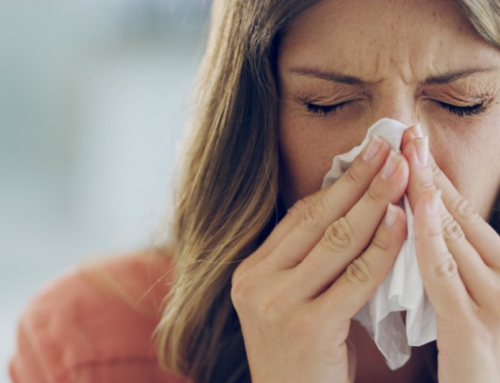Sabah Newspaper – December 11, 2020
Because of the Covid-19 infection in children, both families and physicians are in great distress. In children, this infection is usually not very serious. When treatment is required in children, it is usually evaluated according to studies performed in adults. So, are there any side effects of the Covid-19 drugs in children? Does it cause allergies? What if an allergy develops? prof. Dr. Ahmet Akçay gave information about the risk of allergy development and other side effects of drugs that are frequently used for Covid-19 infection.
Until today, the loss of 0-9 year old children due to this infection is very low, and it is usually around the first year of age in children. Between the ages of 10-19, 0.2 percent of deaths were reported. As a result, the clinical picture is generally mild in children.
Recently, a clinical picture similar to the clinical findings of Kawasaki disease has been described rarely in children associated with an excessive inflammatory response.
President of the Allergy and Asthma Society Prof. Dr. Ahmet Akçay stated that COVID 19 infection usually manifests itself with mild symptoms in children, that no treatment is usually required, but it is very important to choose the conditions that require treatment well. Because every drug has a side effect. The benefits and side effects should be evaluated, and the use of drugs when really necessary can be life-saving. Therefore, according to the recommendations of the Ministry of Health, it is important to start the drugs when necessary and to follow up the side effects. Families also need to know that if they are delayed in using these drugs when they should be used, they will face deadly results.
Side effects of drugs in children should also be considered when making a treatment decision. Today, treatment in childhood should be evaluated separately for each patient and treatment should be planned in possible severe cases. prof. Dr. Ahmet Akçay gave information about the risk of developing allergies and other side effects of drugs that are frequently used for COVID 10 infection.
- WHICH CHILDREN ARE TREATED FOR COVID-19 INFECTION?
- WHAT DRUGS ARE USED FOR COVID-19 INFECTION IN CHILDREN?
- WHAT ARE THE SIDE EFFECTS OF MEDICATIONS USED FOR COVID-19 INFECTION IN CHILDREN?
- HYDROXYCLORACINE (PLAQUANIL)
- WHAT ARE THE COMMON SIDE EFFECTS OF HYDROXYCLORACHY?
- DON'T BE ANGER. BECAUSE;
- DOES IT HAVE EFFECT ON THE EYE?
- DOES IT HAVE A SIDE EFFECT ON THE HEART?
- IS HYDROXYCLORACINE ALLERGIC?
- WHAT TO DO IF AN ALLERGIC REACTION DEVELOPS TO HYDROXYCLORACINE?
- CAN WE KNOW IF A DRUG ALLERGY WILL DEVELOP BY TEST?
WHICH CHILDREN ARE TREATED FOR COVID-19 INFECTION?
From time to time, due to COVID 19 infection, treatment should be given when a severe picture develops due to pneumonia in the lung and a picture similar to Kawasaki syndrome in children. Especially in children with respiratory distress, nutritional problems, immunodeficiency, and important diseases such as diabetes, kidney disease and heart disease, COVID 19 infection can be severe. Treatment should be given to children with severe infections and those with these diseases.
WHAT DRUGS ARE USED FOR COVID-19 INFECTION IN CHILDREN?
Hydroxychloroquine, lopinavir/ritonavir, favipravir can be used by the Ministry of Health for COVID 19 infection in children. In addition, azithromycin is often used as an antibiotic.
WHAT ARE THE SIDE EFFECTS OF MEDICATIONS USED FOR COVID-19 INFECTION IN CHILDREN?
Children often do not need treatment, as the infection is mild. However, treatment may be required in children with severe infections and underlying diseases. For this reason, it is very important to know what kind of side effects the drugs to be used have.
HYDROXYCLORACINE (PLAQUANIL)
Hydroxychloroquine is normally used in the treatment of malaria, rheumatic diseases. It is used in the treatment of disease because it is thought to be more effective in the treatment of pneumonia as well as preventing the virus from entering the body.
When pneumonia develops in children due to COVID 19 infection, this treatment can be given alone or in combination with azithromycin. Hydroxychloroquine treatment is used in outpatient or hospitalized children who develop pneumonia.
There are usually no serious side effects against hydroxychloroquine. Children are more likely to develop side effects with hydroxychloroquine than adults. Hydroxychloroquine can cause side effects on the skin, eyes, blood, heart and gastrointestinal tract.
WHAT ARE THE COMMON SIDE EFFECTS OF HYDROXYCLORACHY?
It can cause nausea, vomiting, stomach pain and cramps, loss of appetite, weight loss, diarrhea, dizziness, headache, ringing in the ears, mood changes, irritability, skin rash, itching or hair loss.
If you experience some rare side effects, you should definitely inform your doctor. These;
Muscle weakness, uncontrolled movement, loss of balance or coordination, blurred vision, sensitivity to light, seeing halos around lights, pale skin, easy bruising, bleeding, seizures, unusual thoughts or behavior.
DON’T BE ANGER. BECAUSE;
It should be known that the symptoms that are rarely seen are the symptoms that may occur if it is used for a long time. Due to the short-term use of this drug during the treatment of COVID 19, rare side effects are not expected. Usually no serious side effects are observed.
DOES IT HAVE EFFECT ON THE EYE?
Since there is a risk of developing retinopathy and permanent vision loss if used for many years, eye examination is usually not required for short-term use.
Since the treatment of this disease will be short-term, no problems with the eye are expected.
DOES IT HAVE A SIDE EFFECT ON THE HEART?
Hydroxychloroquine may prolong the Q-T interval, predisposing to ventricular tachycardia. For this reason, it should be questioned whether there is a condition that prolongs the Q-T. If necessary, EKG should be taken and closely monitored. The first thing to do in patients who develop cardiac problems is to reduce the dose of the drug and, if necessary, to discontinue the drug. Concomitant use of hydroxychloroquine and azithromycin should be avoided in children and adults with a condition that prolongs the Q-T interval. Because the antibiotic azithromycin is also a drug that can prolong the QT interval.
IS HYDROXYCLORACINE ALLERGIC?
Especially patients with drug allergies are rightly worried about whether they will develop an allergy to hydroxychloroquine. Generally, no significant allergic reaction develops to hydroxychloroquine. Although allergy develops, it usually does not develop suddenly. Drug allergy causing allergic shock is extremely rare. Allergic reactions to this drug are usually in the form of mild skin rashes. Generally, allergic skin rashes can develop 2 to 30 days after taking the drug. However, allergic skin manifestations are usually mild.
When we look at the literature, there are rare case reports of Stevens Johnson syndrome, toxic epidermal necrosis, an allergic reaction called erythema multiforme, and acute exanthematous pustulosis, which manifests itself with fluid-filled rashes against hydroxychloroquine.
WHAT TO DO IF AN ALLERGIC REACTION DEVELOPS TO HYDROXYCLORACINE?
Since the effect of hydroxychloroquine treatment is controversial, it is recommended to discontinue the drug in case of allergy development. Since it is usually used for a short time for COVID 19 infection, it will be sufficient to discontinue the drug in case of allergy development. It has been reported that the drug can be used successfully with the disinfection method (starting with a very small dose and gradually increasing the drug dose) in some diseases where this drug should be used for a long time.
CAN WE KNOW IF A DRUG ALLERGY WILL DEVELOP BY TEST?
It is not recommended to test every patient to see if there is a risk of developing allergy to this drug in those with drug allergies. For those who have previously developed an allergy to this drug, an allergy test can be considered in the form of sticking on the back. Special allergy tests can be performed in people who develop serious reactions in the first 2 hours after taking the drug.






